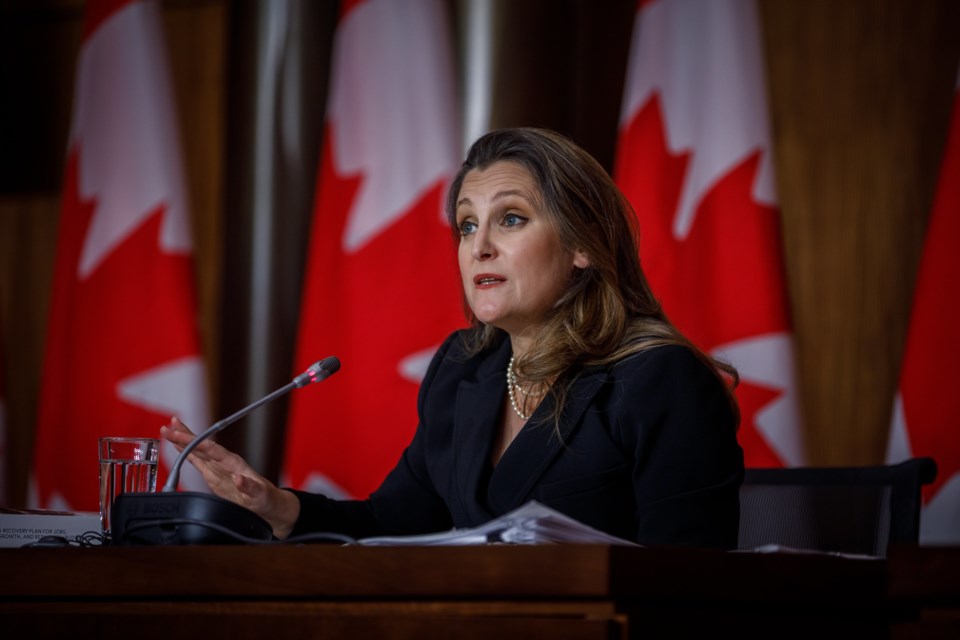A prominent Vancouver-based developer is sounding the alarm on a vacant land tax under consideration by the Department of Finance, saying such a tax is “illogical” and will not accelerate housing delivery across the country.
Beau Jarvis, president and CEO of Wesgroup Properties LP, criticized the possible tax in a Nov. 25 letter to then-deputy prime minister and finance minister Chrystia Freeland, who resigned from cabinet Monday.
The fate of the proposed tax is uncertain given Freeland’s resignation and a pending federal election in 2025, which could see the federal Conservatives form government. The Conservatives are leading the Liberals by 22 points, according to a Dec. 4 Leger poll.
Meantime, Federal Housing Minister Sean Fraser announced Monday he will not seek re-election.
Despite those developments, Jarvis told BIV he still intends to keep advocating against the proposed tax, which he said is based on a misconception that developers are speculating and purposely withholding supply.
He said holding vacant land, in fact, costs developers money, and they would build more homes faster if it weren’t for years-long rezoning and permitting delays, current taxes and levies, economic uncertainty and other factors.
“Our land debt is based on floating interest rates, which have risen by as much as 400 per cent over the past two years. This has already imposed a significant financial burden on those holding land intended for housing development,” Jarvis wrote to Freeland.
The Bank of Canada has cut its key rate five times since the start of the year.
“The rezoning and development permit process often takes over five years to navigate,” Jarvis went on to say in the letter. “Even after that, the market conditions must be conducive for selling homes at prices that cover the cost of delivery. To suggest that taxing vacant land will stimulate housing construction is simply illogical.”
The potential vacant land tax is currently in the consultation phase, and details of it have yet to be determined, such as the tax base, tax rate and definition of “vacant land.” The Department of Finance is currently accepting submissions from stakeholders until Dec. 31, although further rounds of consultation are possible.
In his letter, Jarvis said housing should be treated like the agriculture, film and video game industries, which receive subsidies and tax credits.
“These incentives aim to support industries where we face no immediate crisis,” he wrote. “Meanwhile, in the midst of a housing crisis, the government penalizes the very industry responsible for delivering homes.”
Jarvis told BIV he might consider writing another letter given Monday’s political developments.
“Does [Monday’s news] mean we’re going into election mode and maybe consultation on this particular policy starts to slow down a little bit? I don’t know.”



